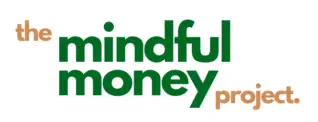Saving money is one of the most important things you can do for your financial future. It allows you to set aside money for a rainy day, invest in your future, and build good financial habits. However, saving money also has its drawbacks. In this article, we will explore the pros and cons of saving your hard-earned cash. We will help you decide whether saving money is worth it for you!
The Pros of Saving Money:
Allows You to Build Good Financial Habits

An important factor in saving money is having the self-control and discipline to live within your means, rather than spending every pound you earn.
When you save money, it helps strengthen your willpower against unnecessary expenditures and keeps you from getting into unnecessary debt.
The impact of this can’t be understated. Learning how to control your spending can help you avoid financial problems down the line.
To build a strong financial position, you need to consistently earn more than you spend. Over time, this difference will build up, especially if you invest it wisely. However, you won’t be able to start investing unless you’ve started saving first. Just like with making positive health choices, you get better the more you practise it!
Provides a Rainy Day Fund for Emergencies

The best reason to save money is arguably that it provides “insurance” against unexpected events and emergencies in life. The last thing anyone needs when they’re not expecting it is a sudden financial emergency caused by an accident or illness. While it’s impossible to predict these situations, we can prepare for them by putting money aside as a type of insurance.
If you have £500 saved in the bank and your car breaks down, then you will be able to pay for repairs without breaking into your monthly budget. If anything happens to your boiler, you won’t blow your budget because you’ve already put money aside. An unexpected expense like this can be very costly if you don’t have a savings cushion.
Saving for a rainy day is essential because it gives you options. You can choose to pay for the repairs in cash or use your savings cushion to negotiate better payment terms from suppliers. If you don’t have any money saved, then you may need to turn to high-interest forms of debt such as payday loans and credit cards.
Opens the Door to Investing

Being able to invest is the key to building real wealth. Through the magic of compound interest, your money can work harder for you than you’d have thought possible.
However, there are some steps you need to complete first before investing. Saving money allows you to get to the right place to invest. A common “route” people recommend before being able to invest is to first build up an emergency fund to cover unexpected expenses. Then, to pay down high-interest consumer debt. Only once these two things are done, should you be looking to invest.
This is super important because if you don’t have an emergency fund, and an emergency comes along then you may need to sell some of your investments. If your investments are in a down market, then you’ll be locking in the loss. If you still have high-interest consumer debt (such as a credit card), then it is likely the interest being charged on your debt will be much higher than the return you will receive investing, so actually the most optimal way to use your money is to pay down the debt. This tends not to apply to lower interest debt such as a mortgage, or for things like your student loan (in the UK it more closely resembles a graduate tax anyway).
Saving is the way with which you can move through these checkpoints. Don’t underestimate it!
It Can Help You Get a Mortgage
If you want to buy your own home, you’ll need a deposit before applying for a mortgage. Many lenders require at least 20% of the purchase price to be saved before they’ll approve a mortgage.
By putting in place strong saving habits, you’ll be starting to build your deposit fund.
Similarly, banks will assess your spending habits to find out whether you can afford your mortgage or not. If you have been saving money each month and therefore your expenses are lower than your income, you’ll have a much easier time convincing the bank you can indeed afford it!
See related: how to save for a house deposit
Peace of Mind

Knowing that you have some emergency savings set aside gives you peace of mind that you have the resources to weather some shocks. In turn, this can help reduce stress levels from financial stress as well as reducing any money-based anxieties.
The Cons of Saving Money:
Very Low Return
The current average interest rate on savings accounts in the UK is shocking at less than 0.10%. That means, for every £100 you save, you’ll earn less than 10p in interest over the course of a year.
There are better deals of course, but they rarely peak over 1% unless you’re willing to lock your cash away for a longer period of time.
Inflation
Over time, inflation will reduce the spending power of your money. If you put £100 into a savings account today, that might only be able to buy you £98 worth of stuff in 12 months’ time thanks to inflation.
If inflation is running higher than the interest you receive on your savings account, then the real return you are receiving on your money is actually decreasing. For example, if you have £100 in a savings account that pays 0.50% interest, and inflation is running at around (say) 2%, then the real value of your money will be decreasing by about 1.50% each year.
That might not seem like much, but it can quickly add up over time! Especially if all of your wealth is simply tied up in a savings account.
May Not Be Covered
The Financial Services Compensation Scheme (FSCS for short) provides depositors with protection for the first £80,000 they save with eligible institutions. This is great for depositors as it protects your money in case the institution fails.
However, if you have savings over this limit with the same bank, the money in excess of £80,000 will not be protected. Splitting your savings across banks will help to protect that limit, but something to bear in mind.
You May Miss Out on Potential Investments
If all of your money is tied up in savings accounts, you may miss out on opportunities to invest in stocks and shares which could have earned you a much higher return.
In the UK, for example, it is possible to buy shares in companies on the London Stock Exchange through an ISA account. This makes it tax efficient too!
With savings accounts interest rates sat at crazy low levels of <0.10%, and average stock market returns over the long-term typically 6%+ per year, you can see how putting all of your money in a savings account can negatively impact your finances.
Don’t forget that investing comes with risk – unlike saving – so do your research before parting with your hard-earned cash. Investing returns can be volatile, and you can get back less than you put in. But it is a vital part of wealth building and a topic that is well worth researching more on or getting in touch with a financial adviser. Some of my favourite personal finance books which really helped for me are Rich Dad, Poor Dad by Robert Kiyosaki and I Will Teach You To Be Rich by Ramit Sethi. The former helps to frame why investing is so important, and the latter provides a great strategy and framework that is super simple, low cost and requires very minimal effort to do.
You Need to be Able to Strike a Balance
Even though it is unlikely, there is such a thing as saving too much money. If you’re deferring all life in the present in order to hit a really aggressive savings rate by keeping your living expenses obscenely low, you need to make sure you’re comfortable with the compromises you’re making.
Some warning signs can help tell you that you’re maybe saving too much money. If you’re repeatedly rejecting seeing your friends because you don’t want to spend money, or if you actively don’t see your family because you’re wanting to save money, or if you’re starting to neglect things to do with your health (for example buying the cheapest, worst quality food to save some cash). You’ll know better than anyone whether you’re starting to place too much emphasis on saving money and too little emphasis on living your life.
How to Start Saving More Money
So now you’re sold on the benefits of saving cash, how do you go about doing it?
Build a Budget
Know where you currently are financially. Map out how much you tend to receive in income each month. Then write down how much you normally spend each month. I normally use these spending categories:
- Rent/Mortgage
- Utilities
- Groceries
- Entertainment
- Travel
- Gym membership
- Other
Once you know how much money you should have leftover each month, you’ll be able to know how much you can start to save.
See related: what is a good percentage to save from your paycheck?
If you don’t have much money left over after mapping out the above, you can do one (or ideally a mixture) of two things:
- Scan through your spending to search for areas where you can save money (think switching a utility bill or an energy bill to a cheaper provider or cancelling unused subscriptions)
- Start to think about how to earn some extra money to increase your income, especially if you are currently on a low income
Reducing your expenses only get you so far, whereas increasing your income is theoretically limitless. Some great ideas are to think about any part-time or gig/freelance work you can take on to boost your income in the short term. Longer-term routes to growing your income are by taking a course in a marketable skill (think professional qualifications or trades skills).
Pay Yourself First

Saving money can be tough, especially if you’re used to spending everything that comes in. But, there are a few techniques that can help make the process a little bit easier:
One of the best ways to make sure you save money each month is to “pay yourself first”.
This means setting aside a fixed sum of cash for savings before you’ve even had a chance to spend it. For example, if you want to save £200 per month, have your bank transfer that amount into a savings account as soon as your salary hits your account.
This way of saving eliminates the temptation to spend all your money and leaves you with less choice when it comes time to put some away.
See related: how to save money using envelopes
Create Different Savings Goals
Another way to help build your savings is by really visualising what you’ll use the money for.
Setting a very specific financial goal can help motivate you to stick with your savings plan. If you understand why you’re saving money, you’ll be much more likely to stick with it.
There are tonnes of apps and smarter banking apps available that allow you to create a digital “savings goal” (such as Monzo’s savings pot or Plum’s savings goals). However, don’t be afraid to keep it simple and crack out pen and paper. Chart your progress each day or week or month and see how far you come.
Savings Challenge
Another great way to boost your savings is by embarking on a savings challenge.
This could be having two “no spend” days per week, where you literally aim to not spend any money.
Alternatively, you could start a 52-week saving challenge, which will leave you with over £1,000 by the end of the year. Simply save £1 on week 1, £2 on week 2, £3 on week 3 etc until by the end of the year you’ve worked up to saving £52 per week. These are great for slowly adjusting to lower spending behaviours.
Track Your Spending
Using a savings app such as Chip or Plum can help you to automatically improve your ability to save. They use clever algorithms to analyse your spending and will automatically siphon off money for you that it thinks you can do without. They add up to a surprising number over time! Both also offer services to invest these savings too, all in one handy package.
Similarly, budget-only focussed apps are great at helping you to track your spending. You can easily connect these to your bank account and monitor your spending over time. If you see yourself slipping, you can identify why and try to fix it. Some great options are Emma or Money Dashboard.
See related: best spend tracker app
Conclusion: Is Saving Money Worth It?
The benefits of saving money are clear: it sets the foundation for positive financial habits, allows you to invest in your future and provides a reassuring safety net.
However, there are also some negatives associated with saving your money. For example, inflation nibbles away at the value of your money over time. Additionally, if you’re used to spending a lot of money each month, cutting back significantly to enable some savings can be difficult in the short-term.
Ultimately, whether or not saving money is worth it depends on your individual circumstances. But by understanding the pros and cons of banking your hard-earned cash, you can make an informed decision about how best to use your savings.


